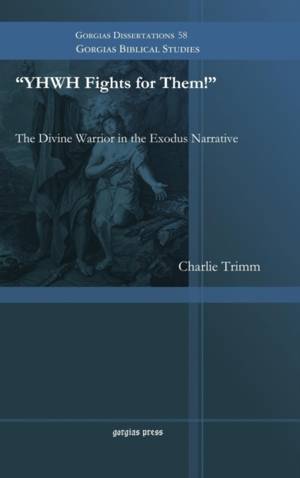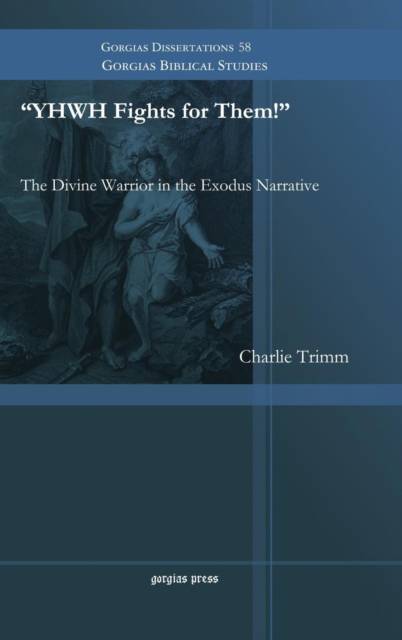
- Afhalen na 1 uur in een winkel met voorraad
- Gratis thuislevering in België vanaf € 30
- Ruim aanbod met 7 miljoen producten
- Afhalen na 1 uur in een winkel met voorraad
- Gratis thuislevering in België vanaf € 30
- Ruim aanbod met 7 miljoen producten
Zoeken
"YHWH Fights for Them!" The Divine Warrior in the Exodus Narrative
The Divine Warrior in the Exodus Narrative
Charlie Trimm
€ 161,45
+ 322 punten
Omschrijving
The divine warrior is an important motif in the Old Testament, leading many to study profitably the motif in its most prominent manifestations in poetic texts. This study builds on that foundation by examining the divine warrior in detail in the exodus narrative to construct a broader picture of the motif in the Old Testament. The heart of the work focuses on the exodus narrative. Many aspects of YHWH's actions in the narrative, such as the terminology, his nature weapons, his psychological attacks, the presence of supernatural envoys and disease, and his harmonious relationship with his people identify YHWH's role as that of a divine warrior. Several other elements match the description of the motif of the divine warrior elsewhere in the Old Testament, but are described in more detail in the narrative than in the briefer poetic divine warrior texts. The exodus narrative also expands the martial aspects of the divine warrior, as it includes a broader selection of nature weapons, psychological attacks directed at Pharaoh, the employment of cosmic enemies against Pharaoh, and assaults on the Egyptians gods. Finally, a possible connection between the divine control of Pharaoh (focusing in particular on the hardening of his heart) and the motif of the divine warrior is explored.
Specificaties
Betrokkenen
- Auteur(s):
- Uitgeverij:
Inhoud
- Aantal bladzijden:
- 330
- Taal:
- Engels
- Reeks:
Eigenschappen
- Productcode (EAN):
- 9781463202712
- Verschijningsdatum:
- 11/06/2014
- Uitvoering:
- Hardcover
- Formaat:
- Genaaid
- Afmetingen:
- 152 mm x 229 mm
- Gewicht:
- 653 g

Alleen bij Standaard Boekhandel
+ 322 punten op je klantenkaart van Standaard Boekhandel
Beoordelingen
We publiceren alleen reviews die voldoen aan de voorwaarden voor reviews. Bekijk onze voorwaarden voor reviews.











